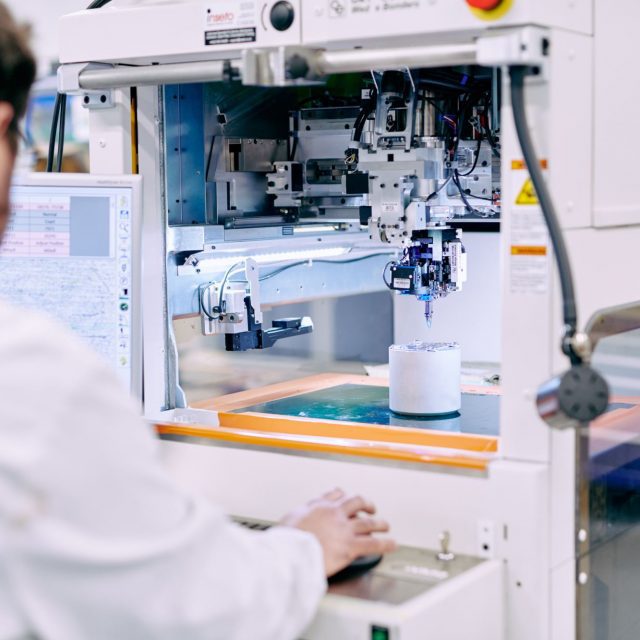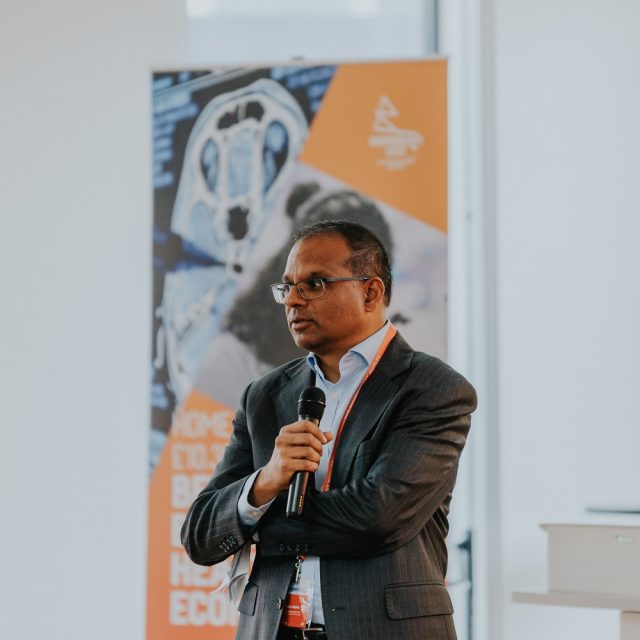MedTech - Opportunities and Challenges in the West Midlands
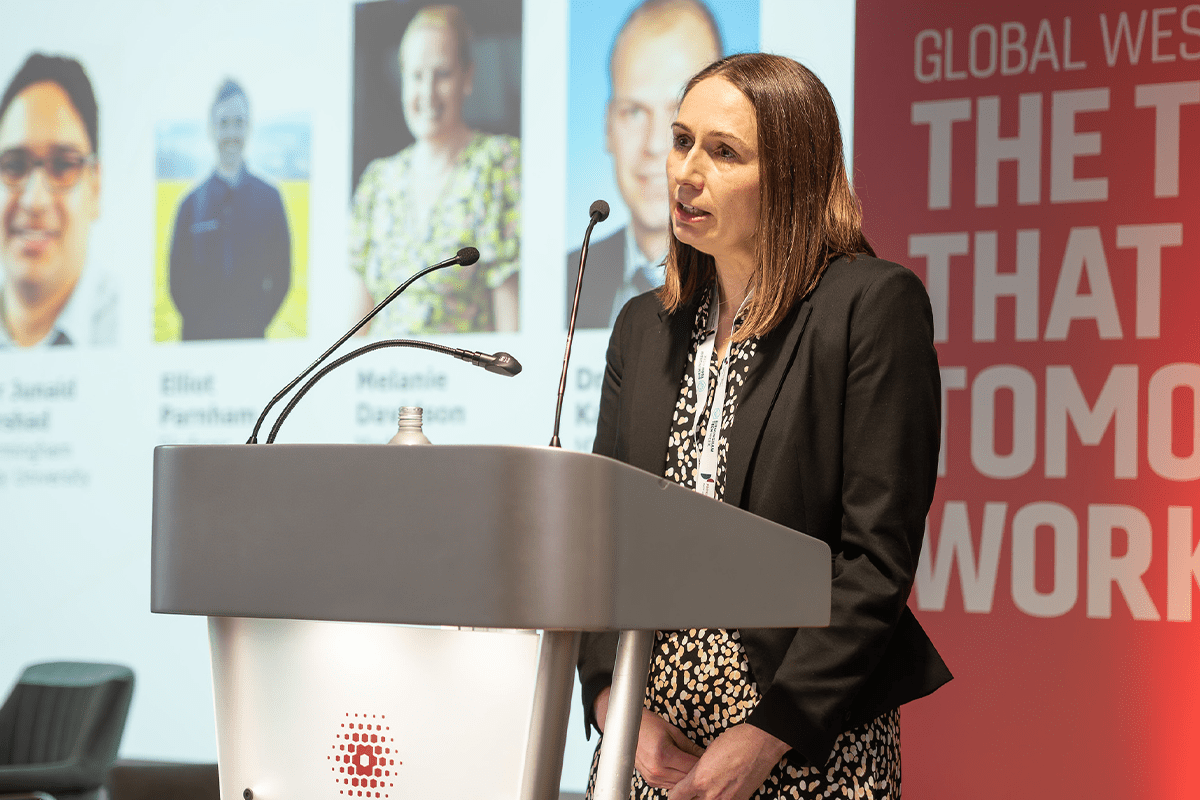
During these talks, we heard from speakers from all manner of sectors, specialties and levels of expertise, as we delved deeply into the offering that our forward-thinking, tech-driven region has to offer.
One of the sectors that stands to benefit most from the region’s innovative developments is Life Sciences and MedTech.
In the panel Hope or Hype: Can Technology Revolutionise Healthcare? we spoke with
- Victoria Bentley, Panel Moderator
- Danny Harrison, Innovation Manager at WMG, University of Warwick
- Junaid Arshad, Deputy Head of Computing at Birmingham City University
- Elliot Parnham, Founder at Skyfarer® LTD
- Melanie Davidson, CEO at Medilink Midlands
- Thorsten Kampmann, Senior Advisor, Transformation Team at MTC – Manufacturing Technology Centre
Hearing from these thought leaders in the industry gave a potent insight into the developments and outcomes that technology can bring to healthcare.
What technology is driving next-gen healthcare solutions?
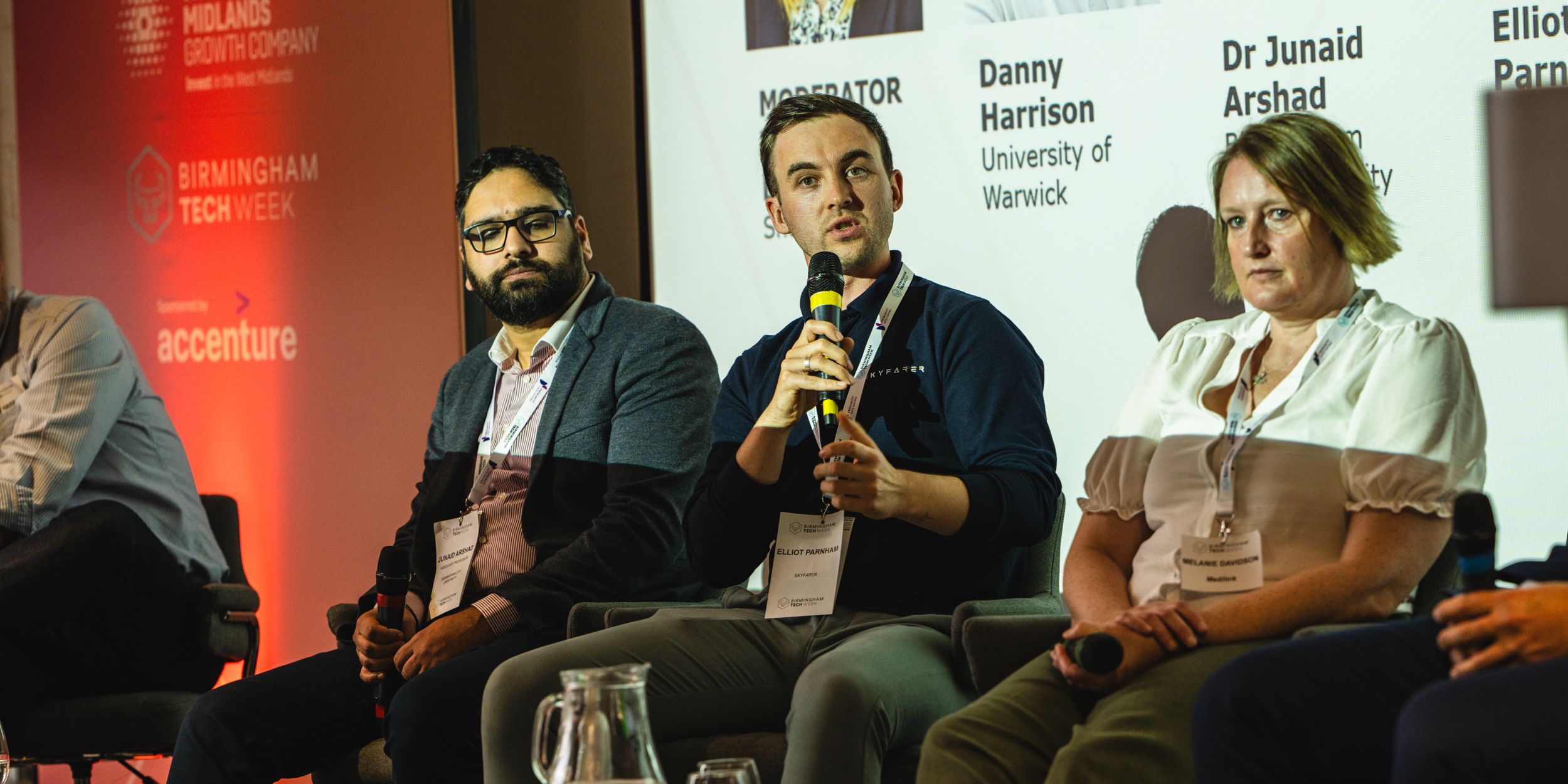
First, we asked our panel what technology is currently available in the West Midlands, and what tech is being innovated.
Among many different aspects of innovative technology, they commented on:
- Drones
- Miniaturisation
- Wearables
- 5G
Drones
Elliot spoke about the use of drones in modern and future healthcare.
“We’ve done some operations trials with Coventry & Warwick Hospital and we’ve managed to showcase sustainability improvements.”
Turning to electric power and reducing carbon emissions is an important target for a lot of NHS Trusts in the UK, Elliot explained. Skyfarer, the company he founded, have developed a way to use drones to replace diesel vans used by the NHS and reduce emissions by 92%.
There are huge gains to be made when considering the kind of cargo and the efficacy of drone delivery. When it comes to pathology samples for instance, Elliot said “It means that patients can get results far quicker than they would usually. Currently, [patients] can wait 24 or 48 hours for a sample to get to the lab and be processed before they can come back to their GP. Whereas with drones – we’ve already proven they can do that a lot quicker with automation, and more routinely as well.”
The current system sees pathology labs receiving many samples in few deliveries (often via the aforementioned diesel vans), inundating them with a lot of samples to process before they expire.
Drones, quickly and routinely delivering samples throughout the day, can cut down on lab inundation and carbon emissions while enabling patients to receive quicker diagnoses.

Miniaturisation
While some say that Moore’s Law (the historical observation that the number of transistors in microchips doubles every year, enabling more complexity on a smaller scale) is tailing off, we are still seeing miniaturisation of technology. An example is the Colonoscopy Capsule that can carry out a colonoscopy by someone swallowing a pill-size camera.
Elliot also spoke about how this is an example of innovating what is thought of as routine treatment for better, more comfortable outcomes for patients.
“Some suggest that Moore’s Law doesn’t exist as it used to, but we are still seeing the shrinking of some technology. And we’re working with some researchers at University Hospital Coventry & Warwickshire Trust on the Colon Capsule that can do a colonoscopy by swallowing the pill, essentially.
“So, the challenge that we’re looking at there is, how do we get those pills out to patients that maybe don’t need to go to hospital or struggle to get to hospital or to their local GP to do a colonoscopy. There’s plenty of supply chain and logistical challenges that we can use technology like drones or in tandem with the Colon Capsule to make movement more efficient and optimised, and also more sustainable as well.”
Wearables
Victoria highlighted to the panel that the global market for wearables is estimated to be $60 billion, set to grow to $290 billion by 2030. With such growth behind us, and plenty ahead, wearables are moving from a novelty lifestyle device to life-changing technology.
Danny Harrison spoke about wearables and how they are being used as more than simple activity trackers.
Wearable technology was used by a cleaning company during COVID-19 to track where their cleaners had cleaned, allowing for comprehensive, safer cleaning. “Simple applications like this generate really important data, especially in times like COVID when it was really important to keep on top of which areas were cleaned and to make sure it was done thoroughly. Wearable technology allowed the business to do that.”
Miniaturisation and commercialisation of tech like this allow for these improvements to everyday life – be it working or personal.
“This was not a high-tech company,” Danny added, “it’s a cleaning company focussed on delivering outcomes. And I think that’s the important thing with all technology. It’s the outcome that the technology is delivering, and it should deliver outcomes that are really needed.”
5G
Junaid Arshad is the Deputy Head of Computing at Birmingham City University – a university at the centre of the region forging the path for 5G. The West Midlands was the UK’s first multi-city 5G testbed and has become the place to innovate with digital interconnectivity.

He said “I think we increasingly see use cases where 5G has helped, but I think we’re still at an early stage where we see the real impact 5G and future comms technologies can actually bring to healthcare. Bearing in mind also that we talk about different use cases, different applications of digital within healthcare, but healthcare is a sector which is highly regulated as well, so there will always be a lag in terms of seeing the real impact of any technology.”
What are the opportunities and what are the challenges?
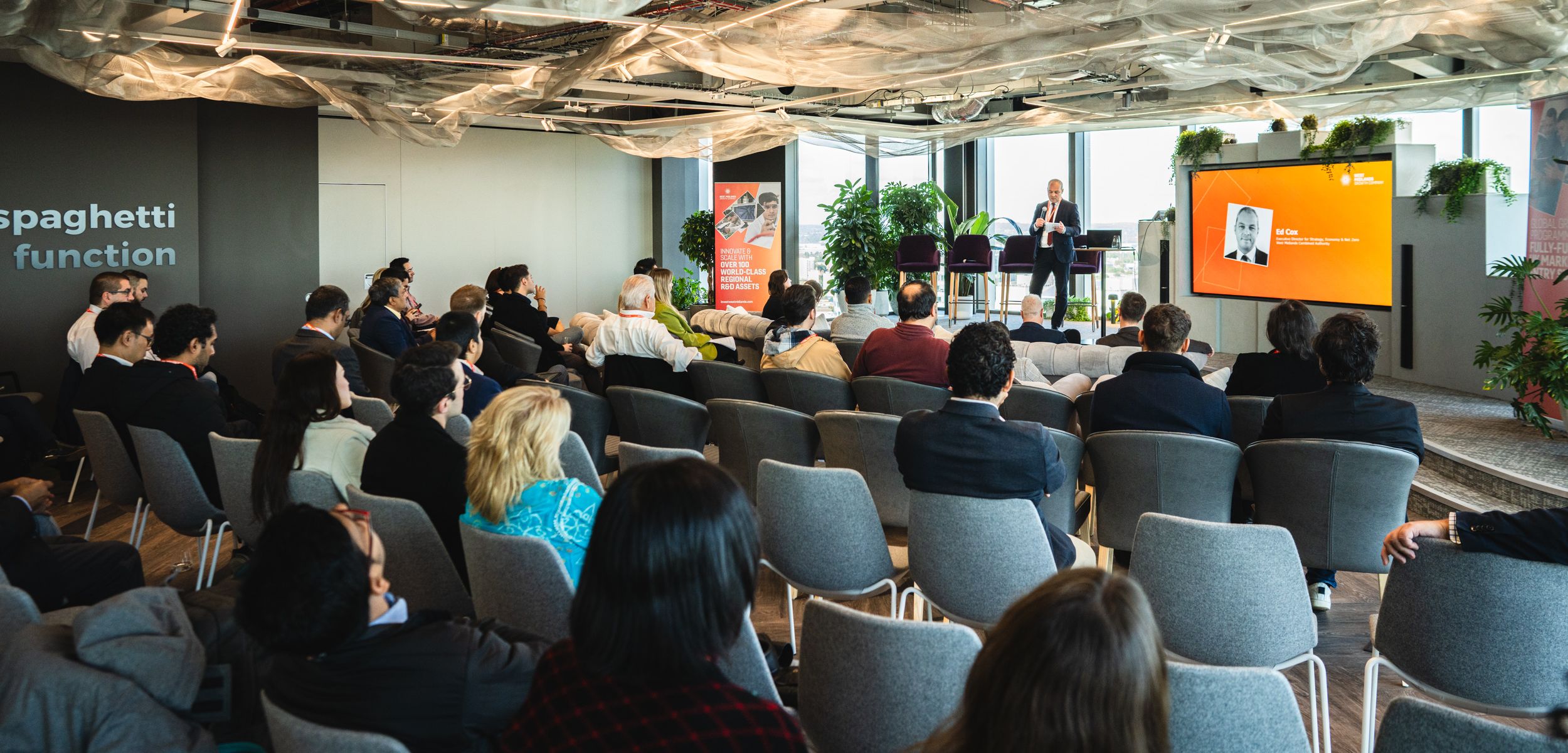
Of course, the road to implemented technology is a long one, and there are many stages where intervention from companies is needed to fully integrate new technology across healthcare, and across all industries.
Much of the difficulty with innovating the healthcare sector is overcoming the friction from regulatory standards to get tech developments incorporated into the ever-turning machine of the NHS.
However, a lot of the opportunities come from smoothing the process for patients – getting them in the door faster (or avoiding in-person visits entirely) and expediting treatments.
Closing the physical gap between patients and healthcare professionals
Drones
One of the big challenges faced is supply chain and logistical issues. Going back to the Colon Capsule device, one of the issues is getting the pill-sized camera to patients without them having to come into the hospital. This is especially relevant in the cases of patients who would struggle to get to the hospital.
It is for things like these that drone technology could make movement more efficient and optimised, as well as sustainable.
5G
Melanie Davidson pointed out the current irony that although 5G is taking off in the Midlands and in the inner-city areas, the locations where 5G can do the most good (especially for healthcare) are in more remote areas.
She said “There are definitely more companies who are engaging within that digital sector and looking at where they can do remote monitoring. But obviously, 5G then needs to catch up – the places where remote monitoring benefits the most is in more remote areas, where patients don’t necessarily have access to GPs or the hospital to be able to easily access them. So, we need to see that capture for the coverage of 5G in the areas that it will benefit.”
Keeping healthcare secure in a constantly innovating economy
Medical technology deals with personal data, and while innovation can improve processes and create better outcomes, new innovations can be vulnerable.
Thorsten highlighted this issue “It’s nice to have a very fast data connection so you can transmit all of a patient’s records, or have a virtual GP, or carry out live capture of medical data. The challenge is data security around that. So, while having the connectivity, what are the processes in place that form our data protection security?”
Junaid expanded on this worry. “But within the benefit to the healthcare system is also a hidden major challenge that is mentioned, which is about data privacy.
“We are divided in terms of how we use our data, what amount of data should be made public, should be used by companies or, even, governments, to provide this sort of minute-level kind of diagnostic.
“So, although big data and AI can provide a step forward for health care, each step will be challenging. It doesn’t help when you see major breaches of such data. Recently, I was reading an article saying in 2023 alone there’s already been quite a large amount of patient data breaches, affecting 87 million patients in the US. Such stories like that make it difficult to take the next steps.”
This was according to Atlas VPN, in a report you can see here.
Data management for a future-thinking industry
When it comes to creating, processing and moving components, our current way of thinking is outdated. We think of a supply chain as a series of steps, but, data has a powerful potential.
By better sharing information between all stages, processes can evolve, grow and innovate, as Thorsten explained.
“There is a lot of data around supply chains in some shape or form,” he said. “One of the problems there is to find systems where partners within a supply chain or project can connect so that you can understand holistically how it is performing.
“So, what we frequently see is that the companies within a supply chain act so that they are more transactional, they are just exchanging goods. The entire environmental data is at present not shared, and there are solutions needed to how this data can be brought together… There’s a lot of benefit we can get from the data if we can process it and forward the benefits.”
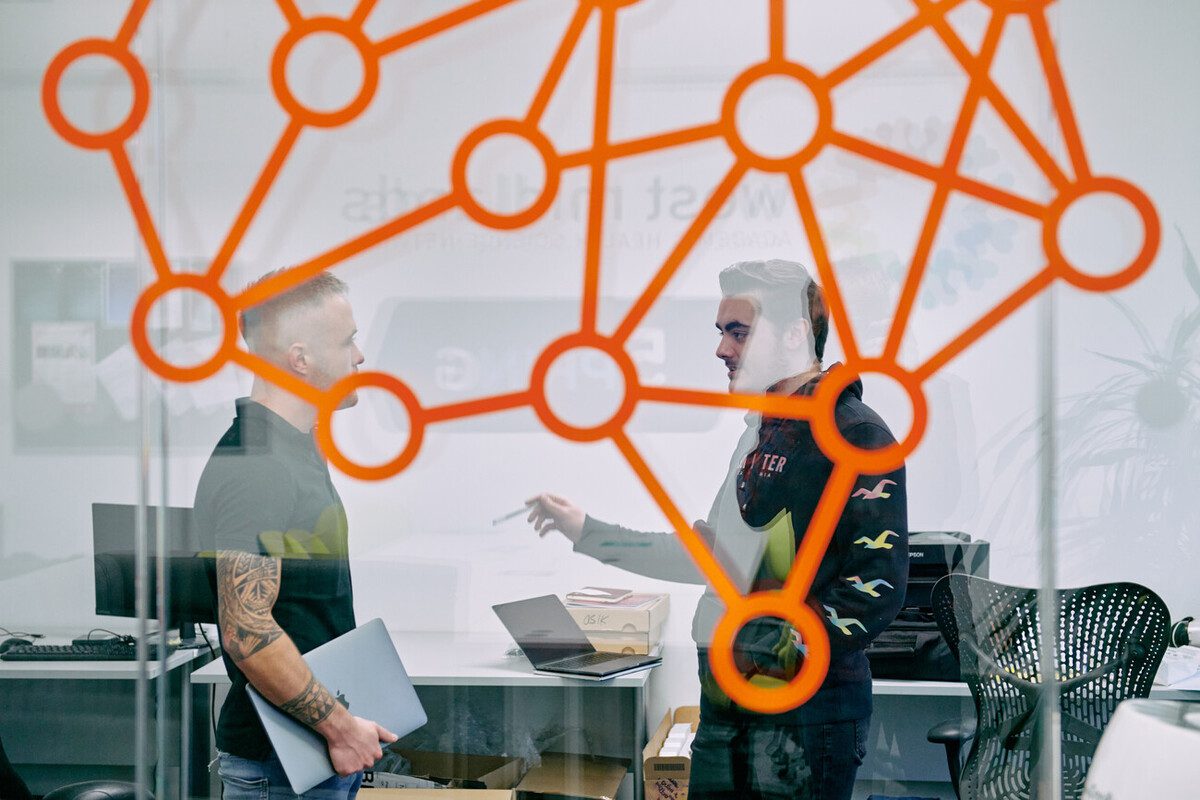
Regulations
One of the repeated challenges that is faced by all aspects of healthcare is the time taken for regulation to catch up with innovation. While new developments are being made by companies, getting them into hospitals, into the GP surgeries, takes time because of the necessary safeguards for patients and their data.
Melanie explained “The regulatory is not catching up with the innovations that are coming out. So, you’re seeing new technologies that the regulators are then going ‘well, we need to put something else in place and make sure that it’s covered’, or ‘we need to revise’.
“It’s companies, who are in that space, making sure that they understand what the regulatory requirements are so that, going forward, you have the right case to be able to present to the regulators to get approved.
“But then also, the thing you create – that you want physicians to adopt – you need to make sure that they’re able to adopt it and it’s able to go into a hospital, that it can be adopted, it’s not too expensive, that it can’t be included in their systems, or it’s easy for them to use. Because if it’s too difficult, it’s just not going to get used, or it’s not going to get used in the right way.”
Easier said than done. But, Melanie continued, “That’s where engaging with various partners and through the innovation accelerator helps – that’s where we can support companies and make sure that they’re engaging with the right individuals and have understood the regulations.
“You don’t want to spend 18 months of research and compiling evidence and running trials for the regulator to turn around and say that’s not relevant and you’ve wasted all that time. You need to get that right, right from the start and take the support that is available.”
The West Midlands is teeming with innovation, innovating and improving the region’s Life Sciences sector all the time.
While regulations can be difficult to overcome, there are many opportunities here to grow and scale a business that works in the Life Science or MedTech spaces, and the expertise to help you get started or expand.
A huge thank you to the panelists for sharing their insights, and to Victoria for moderating. It was a fantastic, eye-opening day, that wouldn’t have been the same without the time and effort from all of our guest speakers.

Free support services
We bring together a project team from relevant organisations across the region. This team includes property agents, recruitment consultants, public sector departments and universities. It delivers a comprehensive support package to quickly and easily help you establish and scale your business in the UK.

Take a look at...
Life Sciences
Key Sectors
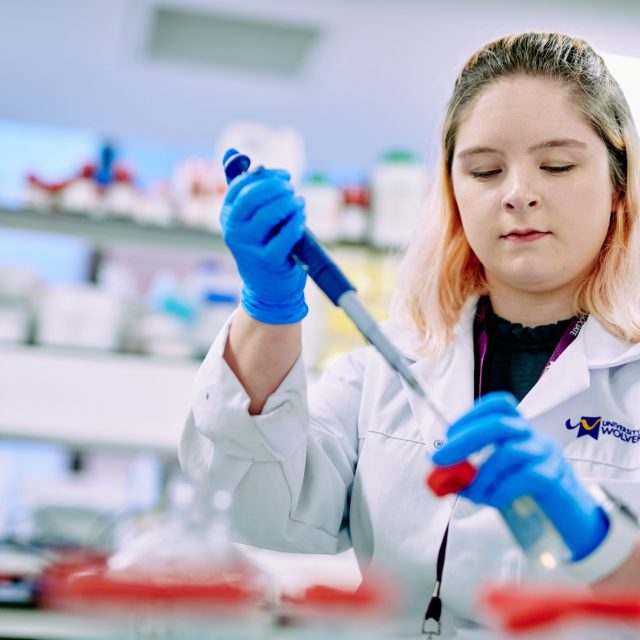
Medtech
Key Sectors
